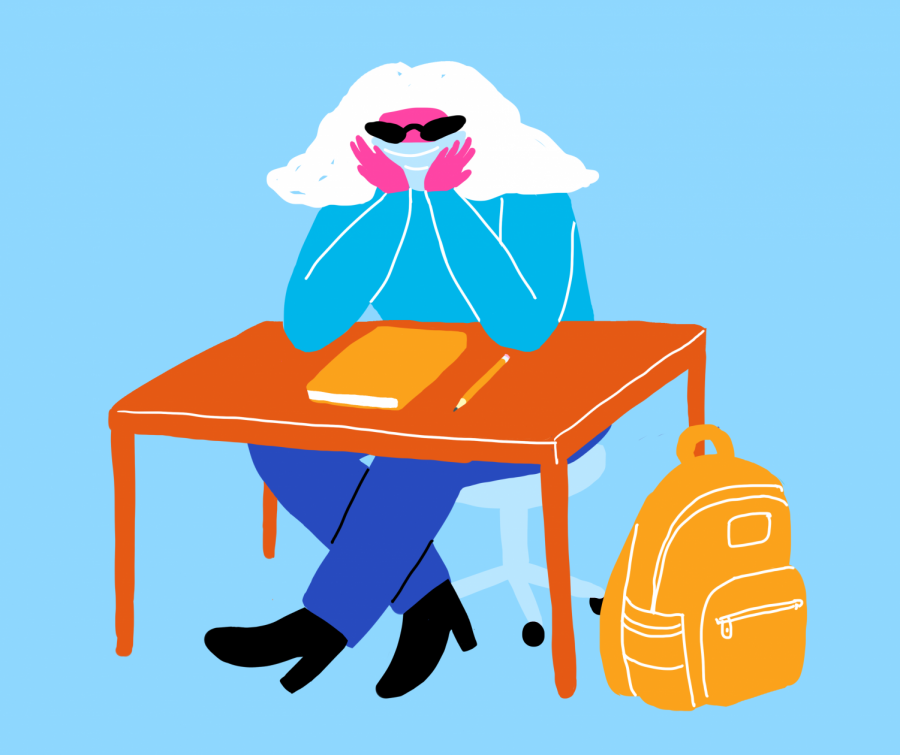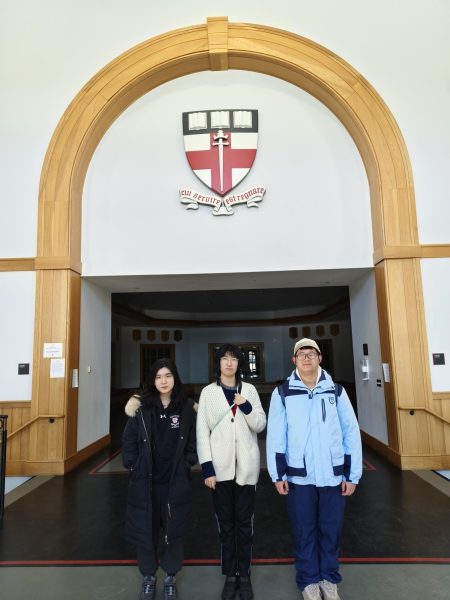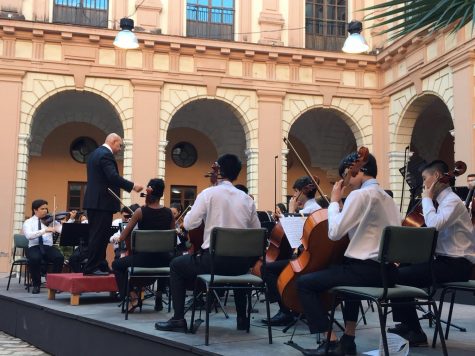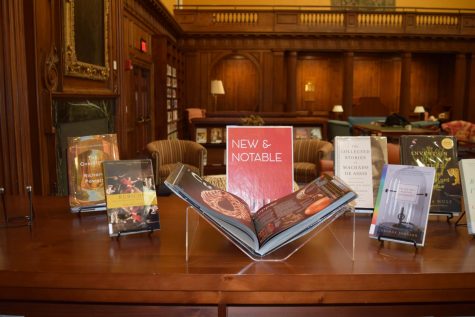COVID Rules at Other Schools
“I hate the term ‘unprecedented times’ but I feel like it’s the only way to describe the fall term… unexpected, unparalleled, yet somehow, we all made it work out,” said Choate student Isabella Edelin ’21. While her words may come as a shock to our pre-fall Term selves, this trend was not uncommon among boarding schools in New England. Despite the diverse circumstances schools found themselves in as a result of the pandemic, each was able to adapt to a unique set of challenges and achieve relative success.
During the fall term, basic Covid-19 protocols were nearly identical between schools, consisting of mandatory mask-wearing and social distancing in non-dormitory spaces (i.e. staying six feet apart), sanitizing hands prior to entering any building, dining in shifts, testing at least once a week, and monitoring symptoms via daily temperature checks and/or health attestation apps, such as Groton’s Safer Me. These regulations are enumerated in detail on each school’s website.
However, other rules were more dynamic between schools and depended on the intrinsic structure and student composition of the school. While most boarding schools were able to enforce a no-outside-contact or travel policy for boarders, including Groton, Choate, Taft, and St. Paul’s School, those with a large percentage of day students, including Milton Academy, had to devise new measures to overcome the nature of their student body.
Milton’s student population is roughly half day students, so to mitigate the Covid-19 threat the school had to limit the campus population to only day students in the fall. Especially considering that it would be more plausible that boarders would need to be sent home as a result of a Covid-19 outbreak, a feat that would be expensive and difficult to pull off for many families (particularly international ones), it was ultimately more beneficial to have all boarders learn remotely. However, like all other schools, they accommodated the remote students by implementing a hybrid classroom model, consisting of both in-person and Zoom students.
Despite the similar restrictions between schools, the ultimate success of each school lay largely in the school’s pre-existing setup, including size and student body. For instance, Milton day students’ exposure to the outside world made Milton as vulnerable as any ordinary Massachusetts day school, especially as cases began to spike in late fall. According to Milton’s online Covid-19 Dashboard, in the week of January 4th to January 10th, Milton recorded a 0.6% Covid-19 positivity rate, an issue that was perhaps inevitable considering the high potential for student exposure to the virus. On the other hand, St. Paul’s School, an all boarding school, had similar restrictions to Milton but recorded a 0% positivity rate throughout the entirety of fall term, according to St. Paul’s student Caroline Taggart ‘20.
Regardless of these differences, the challenges students faced throughout the fall were, for the most part, universal. As the term progressed, students at a number of boarding schools seemed to have developed a growing leniency towards Covid-19 rules. As a product of the physical and mental strain the stringent regulations imposed upon students, students seemed to struggle to adhere to these rules as strongly as they did towards the beginning of the term. “Over time, we all sort of hit a point where the regulations became increasingly draining and, whether it came from a place of exhaustion or just laziness, the mask wearing and distancing became chores,” said Choate student Isabella. Nevertheless, she explained that the students at Choate had to remain diligent despite the challenges, recording no positive cases throughout the term notwithstanding the presence of day students.
However, these struggles did not remain unnoticed by the heads of schools. Recognizing the strain both the restrictions and the pandemic itself placed upon students’ mental health, most schools, including but not limited to Taft, St. Paul’s, Choate, and Milton made concerted efforts to promote the school’s mental health resources and extend their support to students. At Milton, this took the form of periodic seminars and check-ins for both parents and students regarding mental health, during which they reminded students of the counseling center’s resources and educated parents about helping their students cope with remote learning. “It’s hard as it is, not being on campus, seeing my friends, or obtaining the full academic experience that Milton has to offer for almost a year now. But it’s still nice to know that Milton recognizes that it isn’t easy, and that they’re on our side. They’re a lot more understanding than in previous years,” a remote Milton student said.
Similar to Groton’s Ventilation Days, several other schools including St. Paul’s implemented a series of off-days for students to relax and catch up on schoolwork.
Also in acknowledgement of both remote and in-person students’ pandemic-related anxieties, a number of schools have altered their grading system, with Choate canceling term report cards entirely and other schools including St. Paul’s and Milton canceling exams.
While the ISL’s success of the fall has been promising, the winter presents a new set of unforeseen challenges; with rising Covid-19 cases nationally, lower temperatures, and activities being moved predominantly indoors, ensuring students’ safety during winter will be harder than ever. Although some schools like Milton are now opening their campus further to freshmen and seniors, most are adopting more stringent measures and restrictions to isolate students from the outside world. Choate, for instance, will only be welcoming boarders to campus, permitting day students to either board or learn remotely. And for all schools, facilities opening during the winter, including the campus Athletic Center, will now be heavily monitored, enforcing sign-ins to facilitate contact tracing, cleaning of equipment before and after use, mask wearing, social distancing, and sanitizing of areas multiple times a day.
“Physically and mentally, I know the winter is going to be difficult to get through, but I’m no longer as scared as I was before the fall,” Taggart explained. “If we just remain diligent and vigilant about the protocols, I know that we’ll be in good hands.”
Editor-in-Chief










